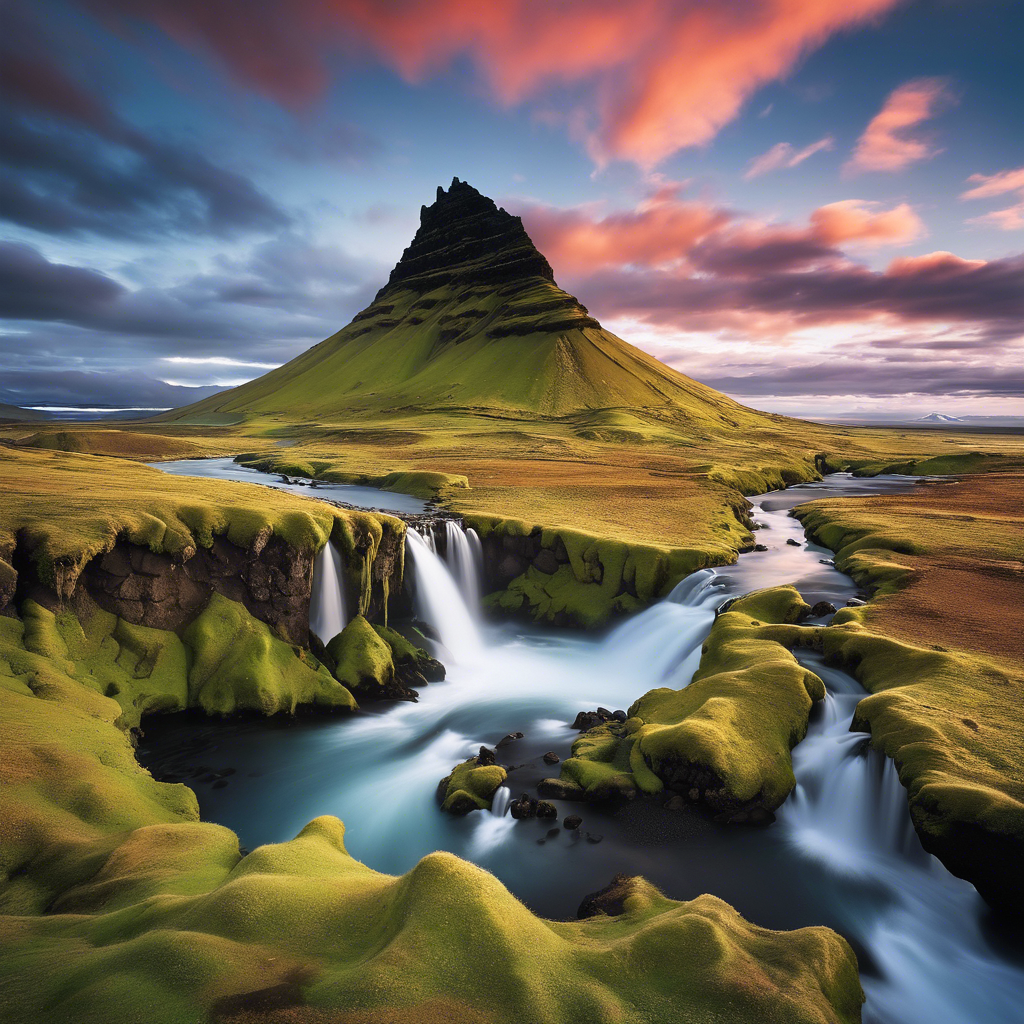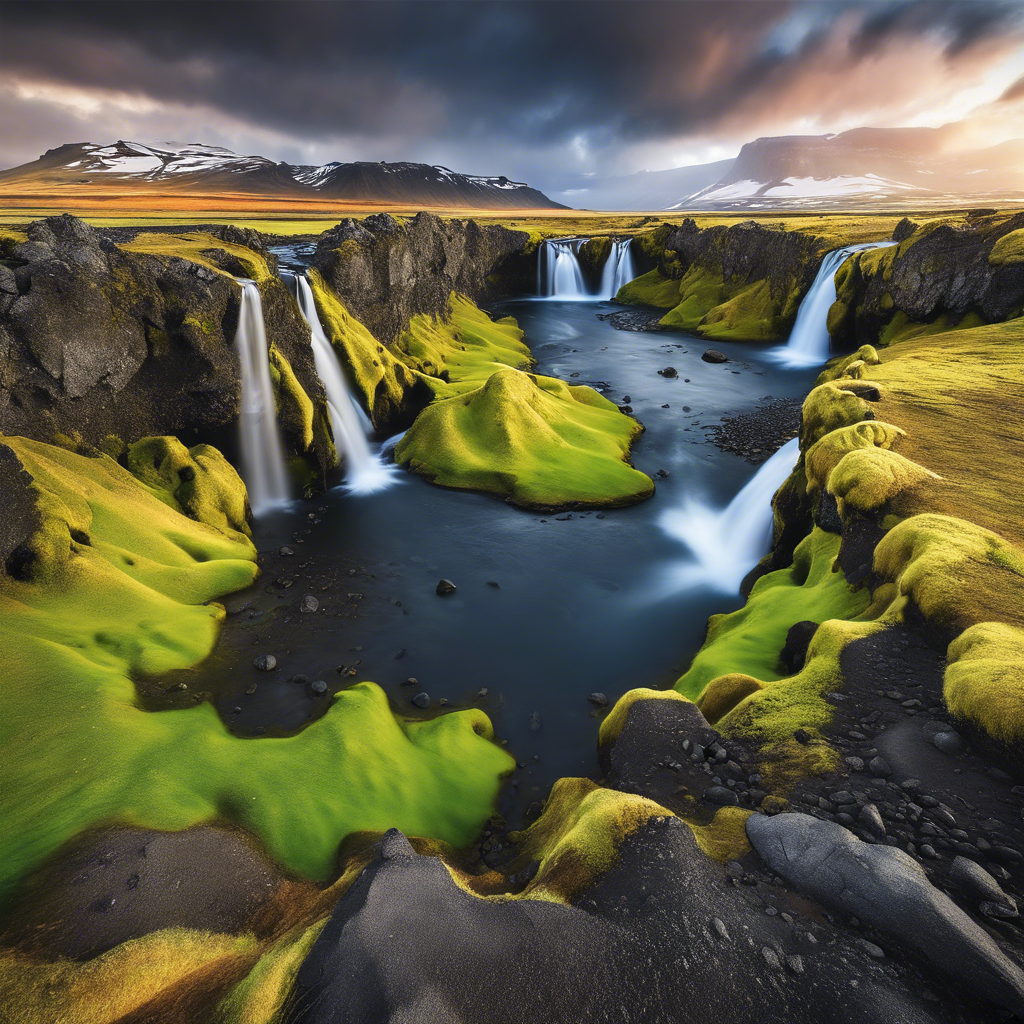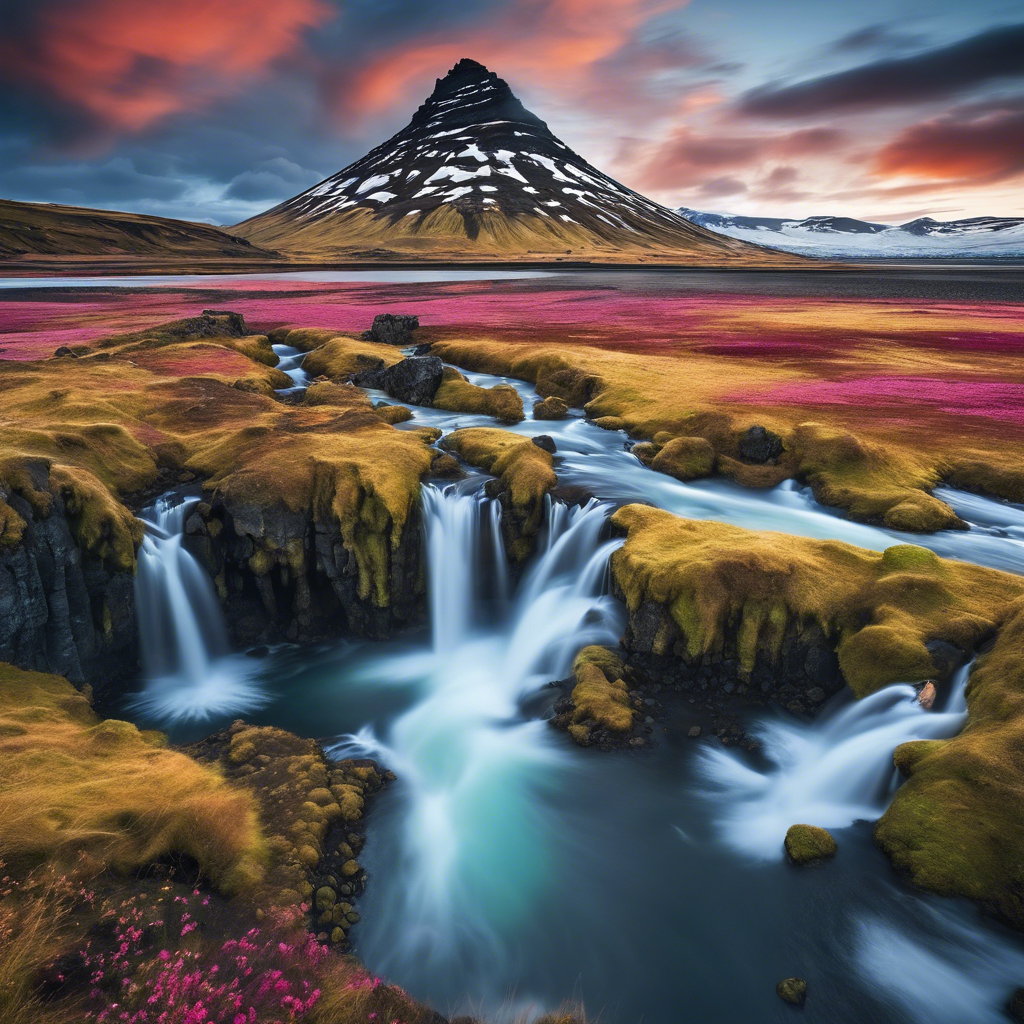Iceland: A Land of Fire and Ice, Where Nature Reigns Supreme
ADVENTURE GAZETTE
Samantha Miller
6/9/20246 min read


Nestled in the North Atlantic Ocean, Iceland is a land of dramatic contrasts, where towering glaciers meet steaming hot springs, and rugged volcanic landscapes give way to lush green valleys. In this documentary-style blog, we embark on a journey to explore the breathtaking landscape, meet the resilient people, and uncover why Iceland remains a must-visit destination for travelers seeking adventure, tranquility, and natural beauty.
Icelandic Landscape:
Iceland's landscape is a testament to nature's raw power and beauty. When you set foot on this volcanic island, you're greeted by otherworldly vistas that defy imagination. Towering glaciers like Vatnajökull and Langjökull dominate the horizon, their icy peaks glistening in the sunlight. These massive ice caps are remnants of Iceland's glacial past, sculpting the land with their slow but relentless movement over millennia.
But Iceland's landscape is not just about ice and snow. The island is home to some of the world's most active volcanic regions, with over 130 volcanic mountains dotting the landscape. The dramatic landscapes of Landmannalaugar and the Highlands showcase the country's volcanic heritage, with rugged terrain, steaming geysers, and colorful rhyolite mountains painting a surreal picture of nature's power and creativity.
Waterfalls are another hallmark of Iceland's landscape, with iconic cascades such as Gullfoss, Seljalandsfoss, and Skógafoss drawing visitors worldwide. These thundering falls plunge over sheer cliffs, sending mist into the air and rainbows dancing in the sunlight, creating a spectacle that is as awe-inspiring as it is mesmerizing.
The People of Iceland:
The people of Iceland, known as Icelanders, are as resilient and rugged as the landscapes they call home. Descendants of Viking settlers who arrived on the island over a thousand years ago, Icelanders have forged a unique identity shaped by isolation, harsh winters, and a deep connection to the land. Lesser-known cultural experiences and traditions in Iceland worth exploring include traditional Icelandic music, folk festivals, and sampling local delicacies at traditional Þorrablót feasts.
Despite Iceland's small population, just over 360,000, Icelanders have made significant contributions to the world stage, from literature and music to politics and sports. Reykjavik, the capital city, is a vibrant hub of creativity and innovation, with a thriving arts scene, world-class restaurants, and a lively nightlife that belies its small size.
But beyond the capital, the spirit of Iceland can be found in its remote villages and rural communities, where traditional ways of life still endure. Whether you're sharing stories with locals over a cup of coffee in a cozy café or joining in on a conventional Icelandic feast known as a Þorrablót, you'll find that the warmth and hospitality of Icelanders are as boundless as the landscapes they call home.




Hidden Gems:
While Iceland's main attractions are undoubtedly impressive, take notice of the island's hidden gems and off-the-beaten-path destinations. Explore the rugged beauty of the Westfjords, where towering cliffs and sweeping fjords offer solitude and serenity amid breathtaking landscapes. Visit the charming coastal village of Stykkishólmur, known for its colorful houses and picturesque harbor, or venture off the beaten path to the remote Eastfjords, where you can hike through mountainous terrain and discover hidden waterfalls cascading down sheer cliffs into the sea. The remote island of Heimaey, part of the Westman Islands archipelago, offers a glimpse into Iceland's volcanic past, with rugged lava fields and dramatic sea cliffs teeming with seabirds. By venturing off the beaten path and exploring Iceland's hidden gems, you'll discover a side of the country that few travelers can experience, creating memories that will last a lifetime.
Conclusion:
Iceland is a land of untamed beauty and wild contrasts, where glaciers and volcanoes coexist, and ancient legends blend with modern innovation. From the raw power of its natural landscapes to the warmth and resilience of its people, Iceland captivates the imagination and leaves an indelible impression on all who visit. Whether you're marveling at the Northern Lights dancing across the night sky, soaking in the soothing waters of a geothermal hot spring, or exploring hidden waterfalls and remote fjords, Iceland offers endless opportunities for adventure, discovery, and wonder. So pack your bags, embark on a journey of a lifetime, and let Iceland's enchanting landscapes and rich cultural heritage inspire you to explore, dream, and discover.
Why Tourists Should Visit Iceland:
Iceland is irresistible for travelers seeking adventure, tranquility, and natural beauty. Here are just a few reasons why Iceland should be at the top of every traveler's bucket list:
1. Land of Fire and Ice: Iceland's unique geological features, including glaciers, volcanoes, and geothermal hot springs, offer a glimpse into the forces that shape our planet. Explore the otherworldly landscapes of the Golden Circle, where you can witness geysers erupting, walk between tectonic plates at Þingvellir National Park, and bathe in the soothing waters of the Blue Lagoon.
2. Northern Lights: Iceland is one of the best places in the world to witness the mesmerizing spectacle of the Northern Lights, also known as the Aurora Borealis. From late September to early April, the night sky comes alive with dancing ribbons of green, pink, and purple light, creating a magical display that will leave you spellbound.
3. Outdoor Adventures: Whether you're an adrenaline junkie or a nature lover, Iceland offers a wealth of outdoor activities to suit every taste. Hike across glaciers, kayak between icebergs, or embark on a thrilling snowmobile ride across the tundra. In summer, you can go horseback riding through wildflower-strewn meadows, trek to hidden waterfalls, or embark on a whale-watching excursion searching for majestic marine mammals. Specific activities and attractions in Iceland that cater to tourists seeking tranquility include visiting remote villages, exploring hidden waterfalls, and embarking on horseback riding through meadows.
4. Rich Culture and Heritage: Despite its small size, Iceland boasts a rich cultural heritage steeped in mythology, folklore, and tradition. Visit historical sites such as the Settlement Exhibition in Reykjavik, where you can learn about the island's Viking past, or explore the ancient turf houses of Árbær Open Air Museum. Experience traditional Icelandic music and dance at a folk festival, or sample local delicacies such as fermented shark and smoked lamb at a traditional Þorrablót feast. Traditional Icelandic music often includes folk songs, known as "rímur," typically performed in a cappella or with minimal instrumental accompaniment—traditional dances in Iceland feature intricate footwork and movements that reflect the country's cultural heritage. As for supporting environmental sustainability and conservation efforts in Iceland, tourists can do so by choosing eco-friendly accommodations, participating in organized clean-up activities, and supporting local businesses that prioritize sustainable practices. Additionally, visitors can educate themselves about responsible tourism guidelines and adhere to them during their stay in Iceland.
5. Environmental Stewardship: Iceland is renowned for its commitment to environmental sustainability and conservation. From harnessing geothermal energy to power homes and businesses to implementing eco-friendly tourism practices, Iceland is leading the way in responsible travel and environmental stewardship. By visiting Iceland, you can support these efforts and preserve this unique and fragile ecosystem for future generations. Tourists can support Iceland's ecological sustainability and conservation efforts by choosing eco-friendly accommodations and participating in organized conservation activities.
Environmental Challenges:
Despite its enchanting beauty, Iceland faces significant environmental challenges, including rising sea levels and overtourism. The island's delicate ecosystem is increasingly threatened by climate change, with melting glaciers and changing weather patterns affecting the landscape and wildlife. Iceland has implemented various measures to combat this, such as promoting sustainable tourism practices and protecting sensitive areas through conservation initiatives. Travelers can play a crucial role in preserving Iceland's natural beauty for generations by raising awareness of these challenges and supporting efforts to mitigate their effects.
Practical Travel Tips:
For travelers planning a visit to Iceland, here are some practical tips to enhance your experience:
1. Best Times to Visit: The best time to visit Iceland depends on your interests and preferences. Summer (June to August) offers long days, mild temperatures, and the chance to experience the Midnight Sun, while winter (December to February) provides winter sports and Northern Lights viewing opportunities. Spring and fall offer a balance between the two seasons, with fewer crowds and changing landscapes.
2. Safety Considerations: Iceland's rugged terrain and unpredictable weather conditions require travelers to exercise caution and be prepared for changing circumstances. Be sure to check weather forecasts, road conditions, and travel advisories before embarking on outdoor activities, and always follow safety guidelines provided by local authorities.
3. Transportation Options: Renting a car is the most convenient way to explore Iceland's remote regions and scenic landscapes. However, guided tours and public transportation options are also available if you prefer to avoid driving. Book transportation and accommodations in advance, especially during peak tourist seasons, to ensure availability and avoid disappointment.
Explore
admin@roamingnomad.net
Discover
Welcome to our gaming blog, your gateway to thrilling adventures in virtual worlds! Dive into stunning landscapes, conquer epic quests, and explore captivating gaming cultures. Whether you're a seasoned player or a curious newcomer, this is your ultimate portal to endless adventure and discovery. 🎮✨
Copyright © Roaming nomad 2024. All rights reserved.
